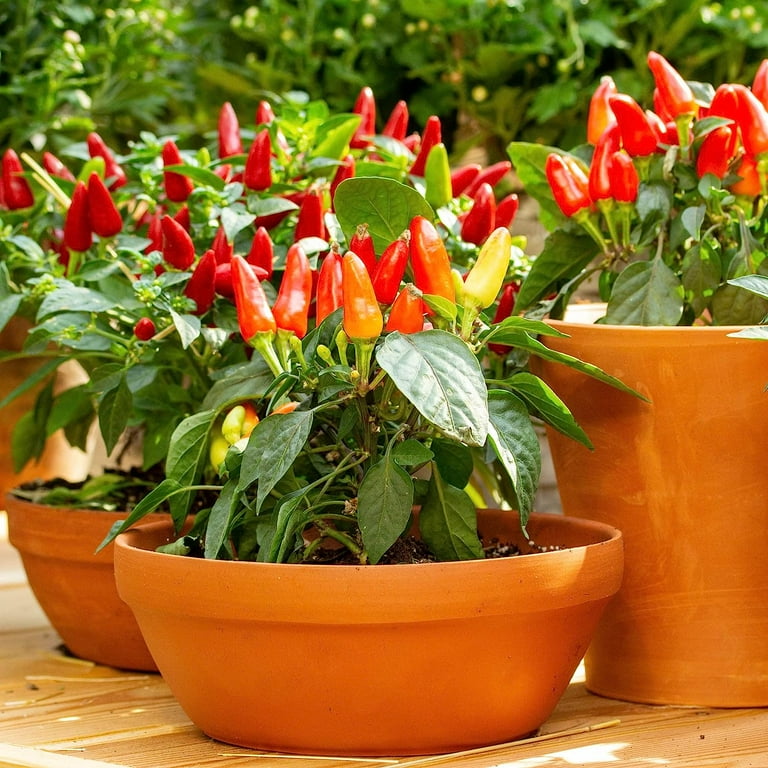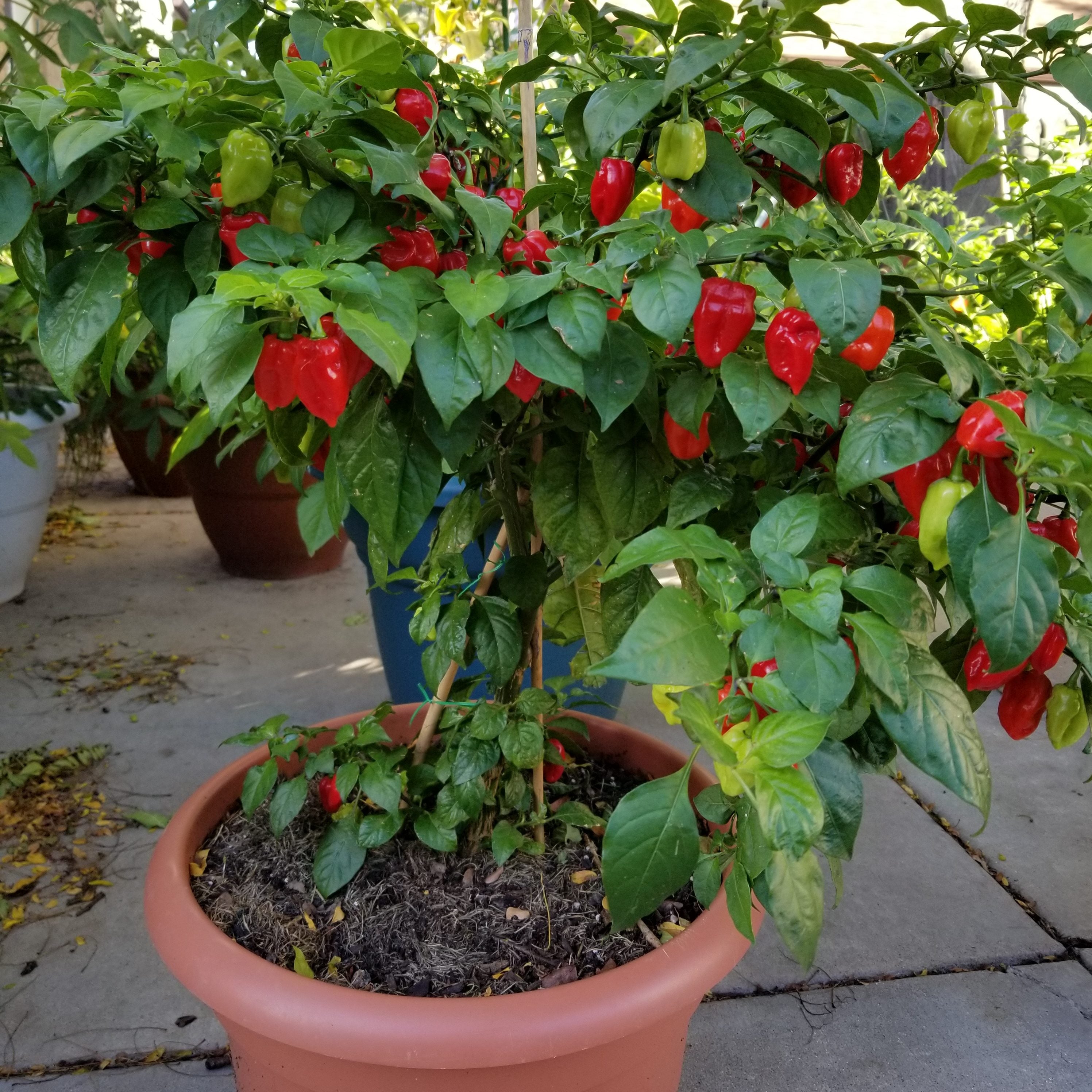Best Fertilizers for Peppers: Achieve Superior Results in Your Yard
Wiki Article
The Ultimate Guide to Fertilizing Peppers: Enhancing Development and Flavor Normally
As pepper enthusiasts seek to grow durable plants yielding flavorful fruits, the role of fertilization comes to be critical in accomplishing these objectives. By discovering the advantages of all-natural plant foods, unlocking the keys behind pepper plant nutrient needs, and diving right into the realm of natural plant food choices, a globe of opportunities emerges for improving the vigor and flavor account of these beloved plants.Benefits of All-natural Fertilizers
Natural fertilizers offer a variety of benefits that add to the total health and efficiency of pepper plants. By improving the dirt with natural issue, such as compost or manure, natural fertilizers boost its water retention capability and nutrient-holding abilities, developing an extra friendly environment for pepper plants to grow in.Moreover, all-natural fertilizers support a diverse and active dirt microbiome, cultivating beneficial microbial activity that assists in nutrient recycling and uptake by the plants. This microbial task can help suppress unsafe microorganisms and illness, minimizing the need for chemical interventions. Additionally, natural plant foods advertise long-lasting dirt health and wellness by maintaining a balanced community underground, which subsequently supports the total health and wellness and resilience of pepper plants above ground.
Understanding Pepper Plant Nutrient Needs
Having actually developed the advantages of natural fertilizers in improving dirt health and promoting microbial task, the emphasis now changes to comprehending the particular nutrient demands important for optimal development and taste in pepper plants.
Comprehending the details nutrient demands of pepper plants is vital for achieving abundant harvests with outstanding taste. By offering the appropriate equilibrium of nutrients through natural plant foods or dirt amendments, growers can ensure healthy and balanced, vigorous plants that create delicious peppers throughout the growing season.
Organic Plant Food Options for Peppers
In improving the development and flavor of pepper plants, choosing the suitable organic plant foods is a crucial consideration. Organic fertilizers use a natural and sustainable way to nurture pepper plants without introducing hazardous chemicals to the dirt and atmosphere. One prominent alternative is garden compost, which enriches the dirt with necessary nutrients and improves its structure, promoting healthy and balanced root advancement and overall plant development. Additionally, compost aids retain dampness in the dirt, minimizing water anxiety on pepper plants during heat.One more effective organic plant food for peppers is aged manure. Rich in phosphorus, nitrogen, and potassium, aged manure gives a balanced nutrient mix that sustains strenuous growth and bountiful fruit production (best fertilizers for peppers). It is essential to make use of well-aged manure to stop shedding the plants with excess ammonia
Fish solution is a fast-acting organic plant food that supplies pepper plants with a quick increase of nutrients. Obtained from fish waste, this fertilizer is high in nitrogen, making it especially beneficial during the onset of pepper plant find more info development. Fish emulsion is simple to use and is readily soaked up by the plants, advertising healthy foliage and solid origin growth.
When selecting a natural plant food for peppers, take into consideration the specific nutrient requirements of your plants and choose options that line up with your horticulture techniques and values.
Ideal Practices for Fertilizing Pepper Plants
Considering the importance of picking ideal natural plant foods for pepper plants, implementing ideal techniques for fertilization is important to make certain optimal growth and flavor growth. It is also crucial to feed pepper plants at the ideal time, generally prior to growing and throughout crucial development stages such as flowering and fruit growth.In addition, integrating go natural matter into the dirt via garden compost or mulching can aid boost dirt structure, water retention, and vitamins and mineral accessibility, promoting much healthier pepper plants with improved flavor profiles. By sticking to these ideal methods, you can efficiently nurture your pepper plants and attain abundant harvests with superior preference and quality.
Troubleshooting Common Fertilizing Issues

pH imbalance is one more problem that can impact nutrient uptake in pepper plants. When the soil pH is expensive or too reduced, certain nutrients come to be not available to the plants. Frequently testing the dirt pH and making modifications utilizing natural modifications can assist preserve an appropriate pH degree for optimum plant growth. Finally, inconsistent fertilization methods can result in irregular growth and fruit advancement. Establishing a normal fertilizing routine and adhering to suggested application rates can assist stop this problem and make sure healthy and balanced pepper plants throughout the growing period.
Conclusion
Finally, utilizing natural plant foods can substantially enhance the development and taste of pepper plants. By understanding the Recommended Reading nutrient requirements of pepper plants and choosing natural plant food choices, gardeners can properly promote vigorous and healthy and balanced development. Complying with best practices for feeding pepper plants and troubleshooting common fertilization problems can assist make sure successful cultivation of peppers. Generally, appropriate fertilization methods are necessary for taking full advantage of the yield and top quality of pepper crops.By exploring the benefits of all-natural fertilizers, opening the keys behind pepper plant nutrient needs, and delving into the world of organic plant food choices, a world of possibilities emerges for boosting the vitality and flavor account of these precious plants.Fish solution is a fast-acting organic fertilizer that supplies pepper plants with a fast increase of nutrients. It is likewise essential to fertilize pepper plants at the ideal time, normally before growing and throughout essential growth phases such as flowering and fruit advancement.
By recognizing the nutrient requirements of pepper plants and picking organic plant food choices, gardeners can successfully advertise energetic and healthy growth. Adhering to finest techniques for fertilizing pepper plants and fixing typical fertilizing problems can aid make sure successful farming of peppers.
Report this wiki page